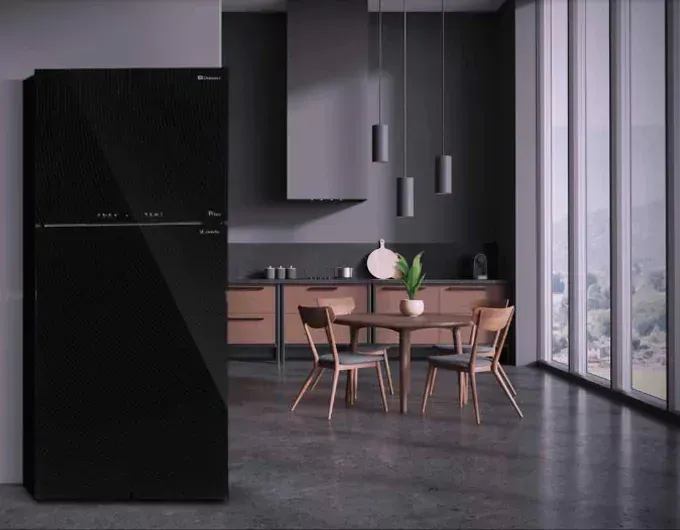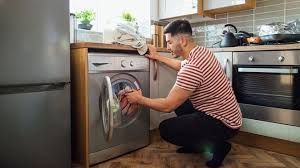Top 10 Frequently Asked Questions About Refrigerator Repair
Q: Why is my refrigerator not cooling?
A: If your refrigerator isn't cooling, the problem could stem from several sources. Dirty condenser coils can obstruct heat exchange, making it hard for your refrigerator to stay cool. Additionally, a faulty evaporator fan motor, which circulates air through the fridge, or a malfunctioning thermostat that fails to regulate the internal temperature properly can be to blame. Checking these components and ensuring they are clean and operational can often resolve cooling issues.
Q: Why is my refrigerator making loud noises?
A: Loud noises from your refrigerator usually indicate mechanical issues. The condenser fan, located near the back of the fridge, or the evaporator fan, inside the freezer, might be obstructed or failing. Additionally, the compressor, responsible for circulating refrigerant through the coils, might be wearing out, leading to unusual sounds. Identifying the source of the noise can help in determining whether a simple cleaning or part replacement is needed.
Q: Why is there water leaking from my refrigerator?
A: Water leaks from a refrigerator can result from several issues. A clogged defrost drain can cause water to overflow and pool at the bottom of the fridge. A broken water inlet valve, which supplies water to the ice maker and water dispenser, can also cause leaks. Additionally, a cracked or damaged water line, often found behind the refrigerator, can lead to water seeping out. Addressing these problems typically involves unclogging drains or replacing faulty components.
Q: Why does my refrigerator run constantly?
A: When a refrigerator runs continuously, it often indicates inefficiencies. Dirty condenser coils, which dissipate heat, can cause the compressor to work overtime. A malfunctioning defrost timer might fail to switch off the cooling system during the defrost cycle, leading to continuous operation. Additionally, a faulty thermostat can prevent the refrigerator from reaching the set temperature, causing it to run nonstop. Cleaning the coils and checking the timer and thermostat can often resolve this issue.
Q: Why is my refrigerator freezing food?
A: If your refrigerator is freezing food, it could be due to a few reasons. A malfunctioning thermostat might be incorrectly regulating the temperature, causing it to drop too low. Incorrect temperature settings can also be a culprit; make sure the fridge is set to the manufacturer’s recommended temperature. Furthermore, a faulty damper that regulates the flow of cold air from the freezer to the refrigerator might be stuck open, causing excessive cooling. Adjusting settings or replacing defective parts usually fixes this problem.
Q: How often should I clean the coils?
A: Cleaning the condenser coils on your refrigerator is an essential maintenance task that should be performed every 6-12 months. These coils, usually located at the back or bottom of the fridge, can accumulate dust and debris, reducing their efficiency. When coils are dirty, the refrigerator has to work harder to remove heat, leading to higher energy consumption and potential cooling issues. Regular cleaning with a coil brush or vacuum ensures your fridge runs efficiently and extends its lifespan.
Q: What should I do if the refrigerator door won’t close properly?
A: If your refrigerator door won't close properly, start by checking for any obstructions inside the fridge that might be preventing the door from sealing fully. Inspect the door gasket for signs of wear or damage; a compromised gasket can prevent a proper seal, leading to temperature fluctuations. Additionally, check the door hinges for alignment issues, as misaligned hinges can cause the door to hang unevenly. Adjusting the contents, replacing the gasket, or realigning the hinges can usually solve this problem.
Q: Why does my refrigerator have a bad odor?
A: A bad odor in your refrigerator often indicates spoiled food or mold. Start by removing all items and discarding anything expired or spoiled. Clean all shelves and compartments with a mixture of baking soda and water to neutralize odors. Additionally, check the drip pan, located beneath the fridge, for stagnant water or mold growth and clean it thoroughly. Regular cleaning and proper food storage practices can help prevent bad odors from developing.
Q: What are the signs of a failing compressor?
A: Signs of a failing compressor include the refrigerator not cooling effectively, the compressor making unusual or loud noises, or being unusually hot to the touch. You might also notice the refrigerator cycling on and off more frequently. If these symptoms are present, it's crucial to have a professional technician assess the compressor. Replacing a compressor can be complex and expensive, so professional diagnosis and repair are recommended to ensure the issue is correctly identified and resolved.
Q: Can I repair my refrigerator myself, or should I call a professional?
A: Basic maintenance tasks such as cleaning condenser coils, adjusting temperature settings, or replacing door gaskets can often be done by homeowners with minimal tools. However, for more complex issues like compressor problems, electrical faults, or refrigerant leaks, it is advisable to call a professional technician. Professional repair ensures the problem is accurately diagnosed and safely fixed, often extending the lifespan of your refrigerator and preventing further issues.




